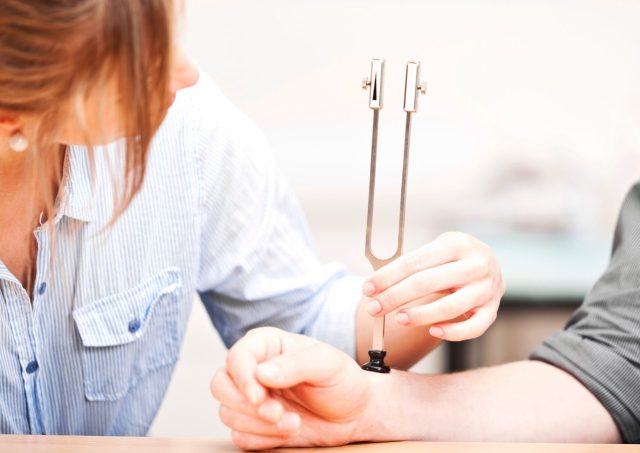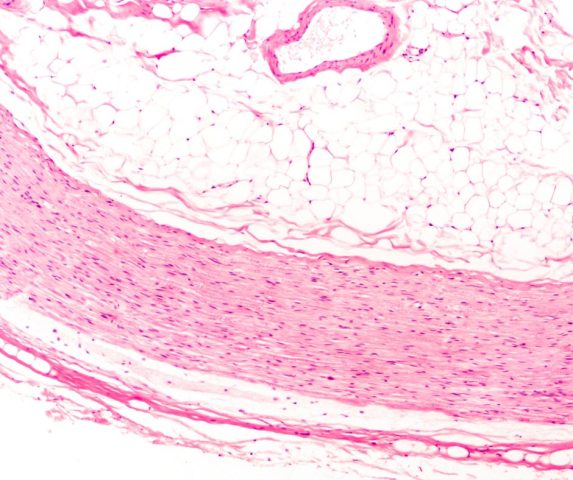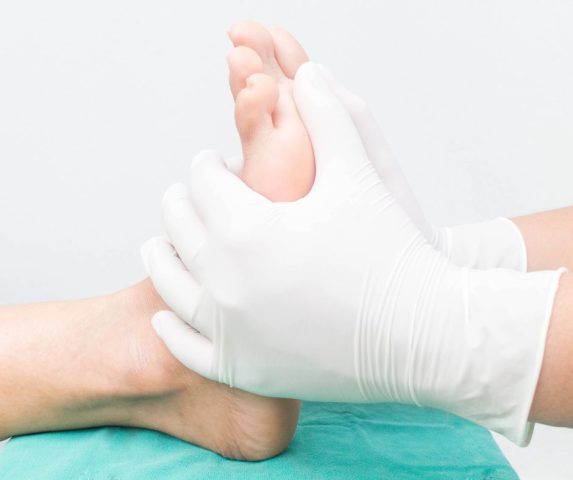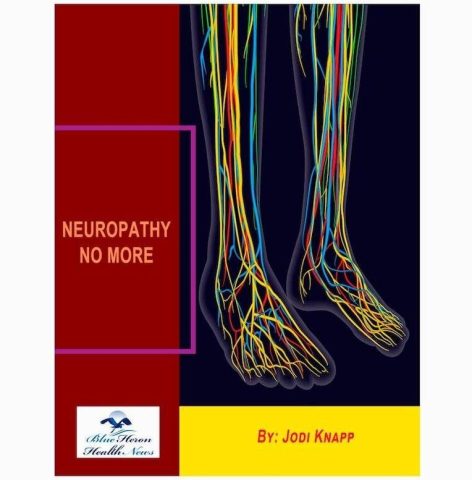5 Neuropathy Treatments That Work: Complete Guide 2024
By Vanessa Richards
January 10, 2024 • Fact checked by Dumb Little Man

Neuropathy is a term that recognizes a range of health issues related to damaged nerves. Instead of a single health issue, it involves a series of symptoms related to peripheral nerve damage.
When the nerves near the brain and spinal cord suffer damage, it results in pain and numbness in the limbs. It may also affect other normal bodily functions.
While diabetes is a leading factor behind rising neuropathy in the U.S., other causes may trigger it. Neuropathy is mostly irreversible, but in some cases, it can be treated.
In cases when it cannot be treated, treatment procedures aim to control the symptoms and stem further nerve damage. Let's explore neuropathy treatments, their symptoms, and their definition.
Neuropathy Treatment: What are Peripheral Nerves?

The peripheral nervous system refers to the nerves outside the brain and spinal cord, which make up the body's central nervous system. The central nervous system is the main control zone that operates the functioning of the rest of the body.
The peripheral nerves are the paths or connecting lines that send information signals to other parts of our body. This helps the body to carry out normal functions.
They also send information back to the central nervous system.
Peripheral nerves types and their functions
There are 3 types/categories of peripheral nerves in the body, each having a different and vital role in keeping bodily functions normal.
- Sensory nerves: These nerves carry signals from the sense organs to the brain and spinal cord. Because of these peripheral sensory nerves, we experience sight, smell, taste, touch, and hearing. They communicate information to the brain to make us see an object, hear a sound or feel the texture or temperature of things we touch.
- Motor nerves: These nerves move opposite to the sensory nerves and carry messages from the brain to the muscles. They inform the muscles how to react or what movement to produce. For instance, they tell the hand to move away immediately after touching something hot or cold.
- Autonomic nerves: These nerves control all bodily functions like breathing, heart rate, blood pressure, sweating, digestion, urination, and sexual arousal. They control and monitor these bodily functions. For instance, the autonomic nerves often trigger sweating to cool down the body when the body's temperature rises.
Neuropathy symptoms depend on the type of peripheral nerve tissue damage. Sometimes, damage to more than one type of peripheral nerve can result in different symptoms of pain and dysfunction.
What is Neuropathy?
Peripheral neuropathy refers to damage to one or more nerves around the nervous system. Such conditions result in muscle weakness, numbness, pain, and other neuropathy symptoms.
Peripheral neuropathy usually starts in the hands and the feet but spreads to other body parts too. Peripheral neuropathy can also affect blood circulation, digestion, and bladder control.
Traumatic injuries, autoimmune nerve damage, infections, genetic problems, and toxins can trigger neuropathy in humans. Diabetic neuropathy is also a common problem around the world.
Medications can control and alleviate the nerve pain associated with peripheral neuropathy.
Symptoms of Peripheral Neuropathy

When the symptoms of neuropathy appear suddenly, it is a case of acute neuropathy.
Chronic neuropathy is a case where the symptoms of peripheral neuropathy develop gradually over the years.
Peripheral neuropathy may cause some common signs and symptoms like:
- Tingling pain in the hands and feet, similar to pins and needles being pricked
- Numbness in the arms and legs
- Throbbing and stabbing sensation in the limbs
- Sensitivity to touch
- Severe pain in the arms and legs that increase at night
- Lack of motor coordination
- Tightness in the hands and legs, similar to wearing tight gloves or socks
- Muscle weakness and spasms
- Low blood pressure
- Dizziness and lightheadedness
- Abnormal heart rate
- Partial paralysis
- Loss of muscle control, shaking hands, or dropping things
- Excessive sweating
- Bladder and bowel problems
- Digestive and kidney diseases like bloating and vomiting
- Weight loss
- Sexual dysfunction
Disorders Associated with Neuropathy
Sensory Neuropathy
Sensory neuropathy occurs when the sensory nerves of the peripheral nervous system suffer damage. People with diabetes are at a high risk of suffering from sensory neuropathy.
Unexplained burning sensations in the hands and feet, stabbing pains at night, numbness, and tingling sensation are the major signs of nerve damage.
Motor Neuropathy
Motor neuropathy, or multifocal motor neuropathy, is a condition where the motor nerve fibers of the peripheral nervous system are damaged.
It becomes difficult for the affected nerves to send electrical signals from the body to the brain. Motor nerve damage causes the arms to feel weak and lose muscle strength, resulting in twitching and cramps. Treatment can provide relief to the motor nerves and increase muscle strength.
Autonomic Neuropathy
Autonomic neuropathy occurs due to autonomic nerve damage. Damage to these nerve fibers disrupts normal body functions like temperature control, blood pressure control, digestion, urination, sexual function, metabolism, etc.
Therefore, autonomic neuropathy can result in dizziness, metabolic disorders, bladder problems, digestion problems, and sexual dysfunction.
Chronic inflammatory demyelinating polyneuropathy
Chronic inflammatory demyelinating polyneuropathy (CIDP) is a type of neurological disorder caused by damage to the peripheral nerves.
People suffering from CIDP feel extreme tiredness along with pain and numbness. It slows down the body's reflexes and weakens the limbs.
CIDP is mostly caused by inflammation of the nerves and their roots. The inflammation destroys the peripheral nerves, especially the protective layer called myelin around them.
It damages the nerves' ability to send signals to and from the brain and spinal cord. This results in fatigue and numbness. CIDP is treatable; however, it is not easy to diagnose.
Carpal Tunnel Syndrome
The median nerve runs from the forearm to the hand through a passage in the wrist called the carpal tunnel. Carpal tunnel syndrome is a progressively painful condition caused by nerve compression.
The median nerve controls the sensations from the thumb to a part of the palm. It also controls the movement of the thumb and the fingers.
Sometimes, the thickening of the tendons in the carpal tunnel causes the median nerve to get pressed or squeezed. This causes pain and numbness from the wrist to the arm upwards.
It is the most common disorder associated with neuropathy, where the nerves get traumatized.
Diabetic neuropathy
Diabetic neuropathy is a kind of neurological disorder associated with diabetes. High blood sugar levels can cause nerve damage in the body.
Diabetic neuropathy can result in nerve damage in the legs. It leads to numbness, tightness, and nerve pain in the lower body and feet.
It can be very painful and irritating for people, sometimes even causing digestive, urinary tract, and heart issues.
According to the peripheral neuropathy fact sheet, 50% of people suffering from diabetes may develop diabetic neuropathy. Maintaining a healthy weight, managing blood glucose levels, and leading a proper lifestyle can manage diabetic neuropathy.
What Causes Neuropathy?
Several underlying health conditions can cause peripheral neuropathies. Some of them are:
Autoimmune diseases
Autoimmune disorders are cases where the body's immune system cannot differentiate between healthy cells and foreign cells. The immune cells attack the healthy tissues of the body. Sjogren's syndrome, rheumatoid arthritis, Guillain-Barre syndrome, lupus, vasculitis, and inflammation of the blood vessels are some autoimmune diseases that can cause neurological disorders.
Diabetes
Diabetes is the most common underlying cause of peripheral neuropathy.
Inherited disorders
Hereditary disorders like Charcot-Marie-Tooth disease can be a potential cause of neuropathy.
Infections
Sometimes, bacterial and viral infections like HIV, Diphtheria, shingles, Lyme disease, leprosy, hepatitis B and C, etc., can cause peripheral neuropathy.
Tumor
Both benign and malignant tumors in the body can compress nerves and damage them, leading to neuropathy pain, and numbness. Some cancerous growths can cause polyneuropathy and result in nerve pain.
Bone marrow disorder
Bone cancer, lymphoma, and other bone marrow-related disorders can severely affect the nervous system and cause neuropathic symptoms.
Exposure to toxins
People working in industries dealing with chemicals and heavy metals like lead and mercury can suffer from neuropathic pain due to prolonged exposure to toxins.
Injury
Accidents and injuries can severely damage peripheral nerves and result in neuropathy.
Chemotherapy
Chemotherapy used in cancer treatment can suppress immune system activity and damage healthy nerve cells. Chemotherapy-induced peripheral neuropathy affects the sensation of feeling and movement of the limbs.
Other health disorders
Liver disease, hypothyroidism, kidney dysfunction, and connective tissue disorders can affect nerve health. Any of these disorders can be a possible underlying cause for neuropathic symptoms.
The peripheral neuropathy fact sheet suggests that 60% to 70% of people with diabetes and 30% to 40% of people receiving chemotherapy suffer from neuropathy.
>> Related Article: NeuroPure Reviews 2024: Does it Really Work?
Diagnosis of Peripheral Neuropathy
A proper and timely diagnosis of peripheral neuropathy is important before treatment. A doctor shall review your full medical history, lifestyle, genetic history, etc. They will further check the symptoms of neuropathy, body coordination, and tendon reflexes to detect the level of nerve damage.
The ways to diagnose peripheral neuropathies are:
- Blood tests– Blood tests help detect diabetes, vitamin deficiencies, and immune system abnormalities.
- Imaging tests-A CT scan or MRI looks for compressed nerves, tumors, and other issues with bones and blood vessels that may cause peripheral neuropathies.
- Nerve function tests-Electromyography (EMG) checks the electrical activity in the muscles to detect any kind of nerve damage. The doctor inserts an electrode into the muscle to check the level of electrical activity as the muscle contracts. The recorded nerve responses help in detecting abnormalities and neurological diseases. Other nerve function tests may include muscle and nerve ultrasound, screening tests to record the body's autonomic reflex, measuring the sweating ability, and sensory tests.
- Nerve biopsy– The doctor removes a small part of a peripheral nerve, usually a sensory nerve, to check for sensory nerve damage.
- Skin biopsy– The doctor may also remove a small piece of skin to check if there is a reduction in the nerve endings.
5 Treatments for Neuropathy
The sooner you have peripheral neuropathy diagnosed, the sooner you can seek treatment to control it. If your doctor detects peripheral neuropathy, it is suggested that you go to a neurologist for further treatment.
1. Natural remedies
Some natural remedies may be effective in pain relief for peripheral neuropathy.
Warm Baths
Taking a warm bath at times can soothe and relieve chronic neuropathic pain by increasing blood circulation in the body.
Quit Smoking
Quitting smoking cannot reverse neuropathy but can surely help you manage the pain and numbness by increasing blood circulation in the body.
Essential oils
Massage with certain essential oils like lavender and bergamot oil can increase circulation in the body and offer relief from the tingling sensation and stabbing pains.
Exercise
Exercising is the best way to control neuropathic pain naturally. It lowers your blood sugar levels to prevent nerve damage and increases blood circulation.
Aerobic exercises, stretching, and balancing are the best workouts for peripheral neuropathy. Aerobics release endorphins in the body, which are natural painkillers.
Brisk walking, cycling, and swimming for half an hour a day should be good enough. Stretching and balance training relieve the feeling of muscle tightness.
2. Medications
Cayenne Pepper
Cayenne pepper contains a substance called capsaicin which makes them spicy. This substance is also present in some topical pain relief balms because of its power to provide pain relief. Using balms and ointments containing cayenne pepper extract can decrease the intensity of chronic pain.
Pain relieving medications
Over-the-counter medications for pain, such as nonsteroidal anti-inflammatory drugs, cure mild symptoms of peripheral neuropathy. Severe symptoms need medically-prescribed painkillers like tramadol or oxycodone, which may develop addiction and dependence.
3. Therapies
Physical therapy
Even though there is no conclusive evidence that physical therapy helps relieve neuropathic pain, it works well. Specific motions used in physical therapy can facilitate nerve healing and decrease chronic pain.
Acupuncture
Acupuncture is a traditional, alternative healing technique that uses needles at specific pressure points to change your experience of pain.
Transcutaneous electrical nerve stimulation (TENS)
Transcutaneous electrical nerve stimulation therapy involves using mild electric current to treat neuropathic pain. Electrodes placed at various points on the skin deliver the current at different frequencies.
Other treatments
Some other treatments sometimes include plasma exchange or intravenous immune globulin therapy.
4. Supplements
People with vitamin deficiency can take the help of Vitamin supplements after consultation with a doctor to relieve pain and numbness caused by peripheral neuropathy. Restoring the recommended amount of Vitamin B1 or B12 often provides relief.
5. Digital Programs
While medicines and therapies can curb the problems that occur with peripheral neuropathy, we would suggest you go a step ahead and seek holistic treatment.
A. Neuropathy Revolution: The Best Holistic Treatment Program for Neuropathic Pain
Neuropathy Revolution is a healing system effectively designed to cure neuropathy and put an end to diabetic nerve pain.
The treatment plan naturally guides you to live a life without the discomforts of diabetes or chronic pain related to peripheral neuropathy. It is a productive way to manage diabetes from the source and prevent nerve pain from coming back.
The steps aim to change your mindset and approach to life to incorporate various techniques. They shall help boost the health of your immune system cells and manage blood glucose levels.
After a certain time, you can achieve a cleansed body free of toxins where neuropathic pain and discomfort do not keep recurring.
Shop Neuropathy Revolution Digital Program at the Official Website.
Full Article: Neuropathy Revolution Reviews 2024: Does it Really Work?
B. Neuropathy No More: The Best Natural Neuropathy Treatment Program
Neuropathy No More is an eBook that provides a wholesome natural way to treat peripheral neuropathy. The health improvement program has all the essential information packed in one place, along with necessary guidelines.
The program helps to eliminate the root problems of neuropathy to provide long-term relief. It works by teaching you to effectively eliminate the problem from the source to repair your damaged nerves.
The PDF directs you about nutrition and diet to effectively curb diabetes, promote nerve regeneration and maintain good gut health. It's one of the best-recommended treatment programs for people who want a natural, step-by-step guide for dealing with neuropathic problems.
Shop Neuropathy No More E-Book at the Official Website.
Full Article: Neuropathy No More Reviews 2024: Does it Really Work?
Conclusion
Living with peripheral neuropathy isn't easy, but it is not life-threatening, at least in the initial stage. People live on for years with peripheral neuropathy by following a good lifestyle, eating right, exercising, and taking other medications.
While your doctor would suggest the right peripheral neuropathy treatments needed for your condition, approaching the natural ways will definitely be a boon.
Neuropathy No More and Neuropathy Revolution are comprehensive healing programs that give detailed guidelines to live your life smoothly without the extremeness of pain and numbness. The complete diet plan, recommended lifestyle, and healing techniques provide total relief from neuropathy like never before.
Click Here to Get Neuropathy No More E-Book at Discounted Price.
Neuropathy Treatment FAQs
What are the risk factors associated with peripheral neuropathy?
Some of the risk factors in the case of peripheral neuropathies are:
- Uncontrolled diabetes
- Alcohol abuse
- High blood pressure
- Vitamin deficiencies
- Infections like HIV and Hepatitis B
- Autoimmune disorders
- Repetitive work like long hours of typing
- Genetic history of neuropathy
- High exposure to toxins
How common is neuropathy?
Neuropathy is common in people of all ages. However, older people are more likely to get neuropathy. Almost 8% of senior citizens suffer from peripheral neuropathy.
Can neuropathy cause death?
Even though neuropathy rarely causes death because of timely management through medicines and therapies, the risk exists. Untreated neuropathy can progressively turn worse and even lead to paralysis.
The final stage of neuropathy can severely impact your life by causing a complete loss of feeling.
Vanessa Richards
Vanessa is a mom of 3 lovely children and a software geek. Outside of her career as a health and wellness instructor. She enjoys writing and researching on topics such as finance, software, health and culinary.




